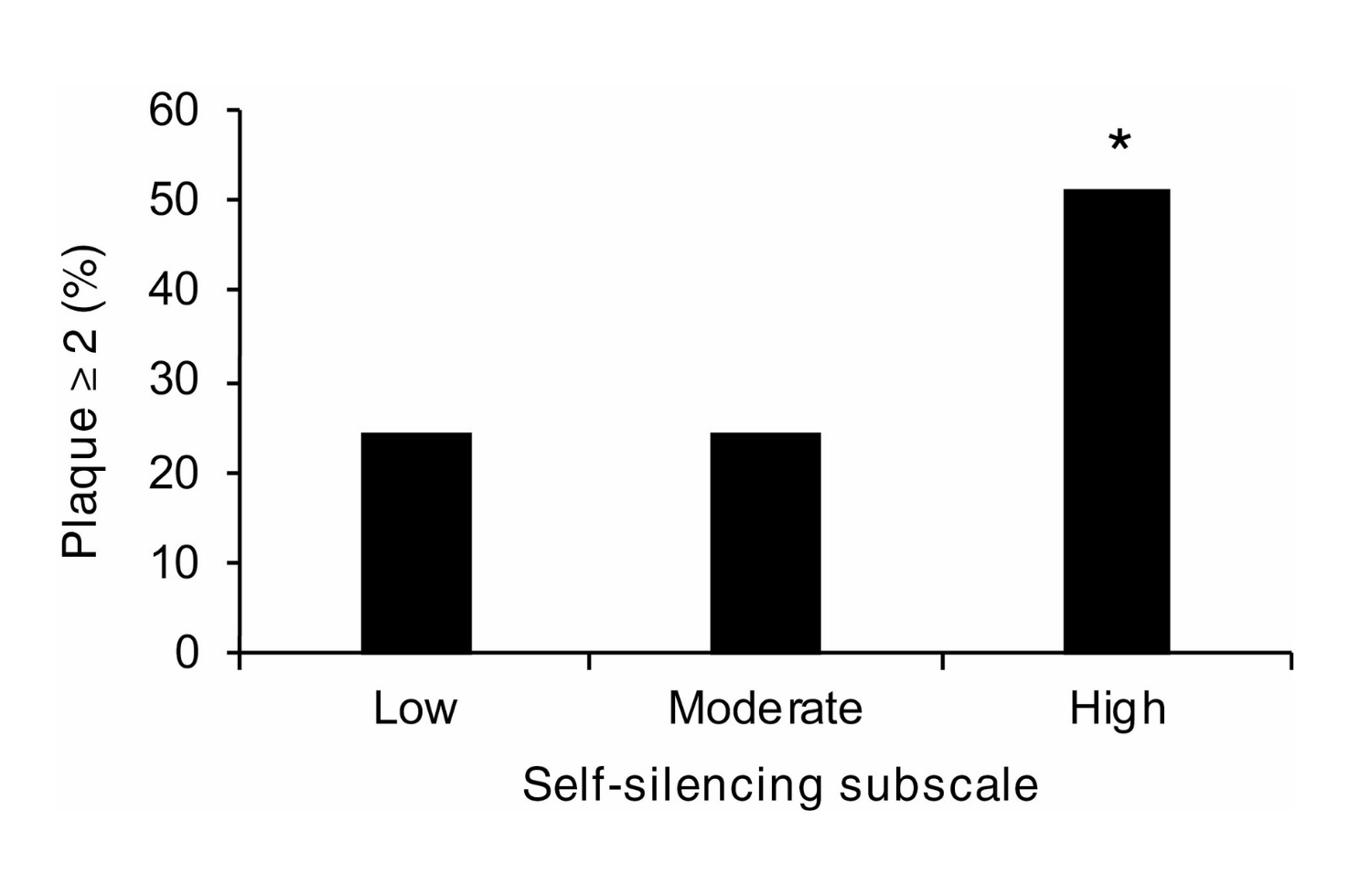New Research on Relationships Between Self-silencing and Carotid Atherosclerosis in Women in Midlife

People engage in a range of behaviors to maintain close relationships. Gendered social experiences, including gender role expectations for women to prioritize the needs of others and to create and maintain close relationships, may be related to cardiovascular disease risk in women. Self-silencing, inhibiting self-expression to avoid relationship conflict or loss, is related to poor mental health and self-reported physical health in women. However, it has not been examined in relation to cardiovascular health, particularly using direct measures of the vasculature.
A group of investigators, including Pitt Psychiatry scientists Karen Jakubowski, PhD (Assistant Professor of Psychiatry), Karen Matthews, PhD (Distinguished Professor Emeritus of Psychiatry), and Rebecca Thurston, PhD (Pittsburgh Foundation Chair in Women's Health and Dementia and Professor of Psychiatry, Clinical and Translational Science, Epidemiology, and Psychology), tested the associations between self-silencing and carotid atherosclerosis in midlife women. They published the results in the Annals of Behavioral Medicine.
The study sampled 304 nonsmoking women between 40-60 years old who reported self-silencing in intimate relationships. Study participants underwent physical measurements, blood draw, and ultrasound assessment of carotid intima-media thickness and plaque. Associations between self-silencing and mean carotid intima-media thickness and plaque index were tested in linear regression and multinomial logistic regression models, respectively, followed by interaction terms between self-silencing and race, adjusted for demographic factors, cardiovascular disease risk factors, partner status, depression, physical activity, and diet.
Findings from the study showed that 47% of participants demonstrated carotid plaque. Greater self-silencing was related to increased odds of plaque, indicating that among midlife women, self-silencing was associated with the development of carotid plaque, independent of cardiovascular risk factors, depression, and health behaviors. The study’s results indicate that emotional expression in relationships may be important for women's cardiovascular health.
“These results suggest the importance of supporting women toward greater self-expression in their intimate relationships,” said Dr. Jakubowski, the study’s first author. “This may involve clinicians helping women develop skills to better express emotions in their relationships and finding relationships that allow them to express their feelings and needs, which may be important for their cardiovascular health in midlife.”
Cardiovascular Cost of Silence: Relationships Between Self-silencing and Carotid Atherosclerosis in Midlife Women
Jakubowski KP, Barinas-Mitchell E, Chang Y, Maki PM, Matthews KA, Thurston RC
Annals of Behavioral Medicine, Volume 56, Issue 3, March 2022, https://doi.org/10.1093/abm/kaab046
